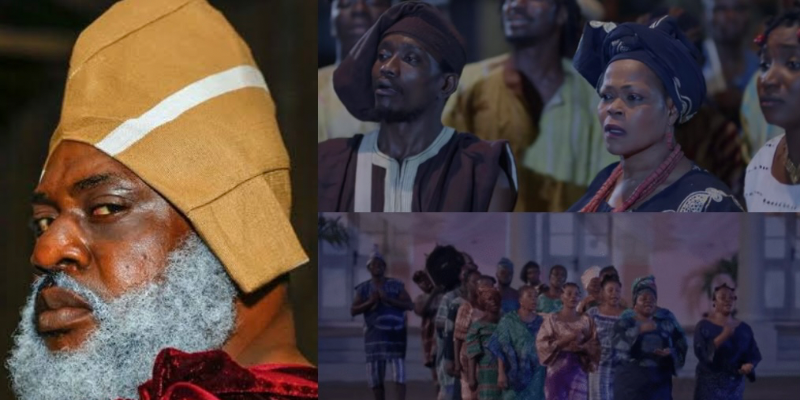
In the 48 Laws of Power by Robert Greene, Law 41 clearly states that “avoid stepping into a great man’s shoes.” If you look at the meaning behind this saying and then tie it to EbonyLife’s adaptation of Wole Soyinka’s play ‘Death and The King’s Horseman,’ you’ll come to realize that is the only thing you can fault the producer of the epic movie, ‘Elesin Oba: The King’s Horseman’ for.
The original play by Wole Soyinka is a masterpiece. Premiered in Ife in 1975, the play has gone through several prestigious theaters, from the Royal Exchange Theatre to the Royal National Theatre, to St. Louis Black Repertory Theater, Oregon Shakespeare Festival, to the National Theater in Lagos, and then to Terra Kulture. The film adaptation by EbonyLife further strengthens Andrew Gumbel’s assertion that ‘Death and The King’s Horseman’ “has been much more widely admired than performed.”
Released on Netflix on November 4, 2022, ‘Elesin Oba: The King’s Horseman’ follows the original story of Wole Soyinka’s play. It tells the story of Elesin, played by Odunlade Adekola who has to commit ritual suicide following the death of the king. This rite has been on and it’s purpose was for the Elesin to go into the afterlife with his king, keep him company and make way of passage for him. Very aware of his obligation to his people, to the title and to himself, Elesin was ready to perform the rite but wanted one last thing before he dies. His satisfied lust, however, delayed his passing on which allowed the British commander, Simon Pilkings – played by Mark Elderkin – interfere in the process and stop him from killing himself.
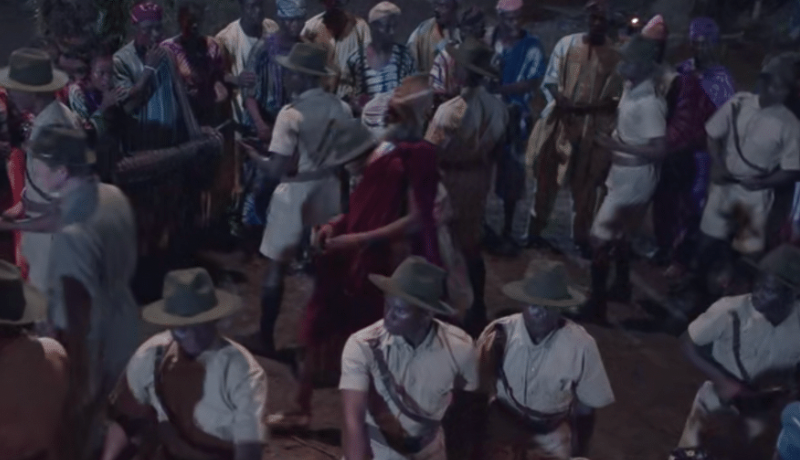
In the original play written by Wole Soyinka, great emphasis was laid on the consequences of the Elesin not dying and the level of havoc the spirit of the king could wreak on the village, but in the film adaptation, due to interpretation, the consequence was watered down and wasn’t vividly visualized for the audience to understand. Rather than a town in chaos, we were made to see just a couple of sad people.
It is important to note that the fault in this could be traced to the director’s unwillingness to change anything from the original play, in turn sticking to presenting the complexities of a play in an actual movie.
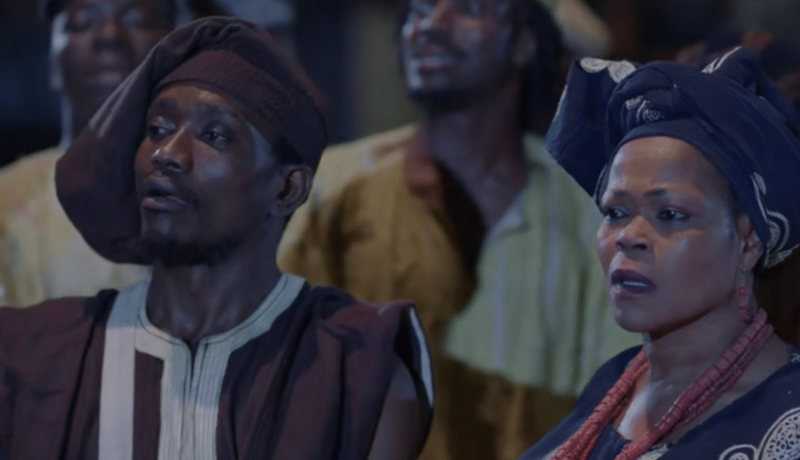
The Loopholes in Elesin Oba: The King’s Horseman
Language barrier: The plots and settings of a play are way different than that of a film and Elesin Oba failed to portray that in the aspect of language difference.
For Pilkings and every other person he interacted with, it might be understandable that he was able to interact with them, but for Elesin, it was outright ridiculous seeing them both have an interaction in two different languages, both of which would never have been able to understand each other.
In the scene that had interactions from both the most, there are things Elesin said that even a Yoruba will find hard to translate, but somehow, the audience was made to believe that Pilkings understood it and could give Elesin a response, vice versa.
There would have been a way around this to give a visual representation of the scene and sell it to be believable.
Elesin’s Death: Followed by his failure to perform his duty as Elesin, anyone in his family available would take his place and we all expected that to happen. The film made it seem like Elesin killed himself immediately he set eyes on the corpse of Olunde, leaving a big question of why he didn’t take the option of killing himself the way he did since he had been locked in that cell.
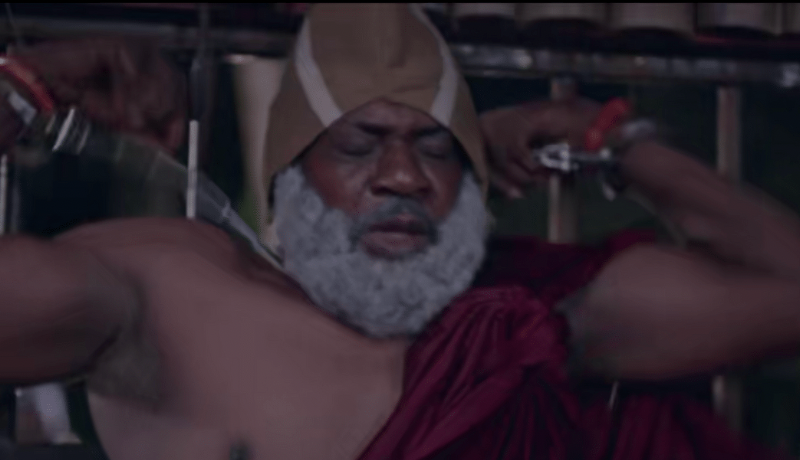
The film was able to make it seem like Elesin didn’t want to die and being arrested was the perfect excuse for him to escape death.
The dramatic conflict: For a people whose tradition was interfered with, expecting chaos in their village, the reaction when they visited Elesin with Olunde’s body was rather too weak.
In a play, the traditional music to portray sadness would have worked well in pulling the audience into the world they perform in, but for a film, a visual representation would have done better.
The scene seemed too simple and watered down that it lost its essence in the movie.
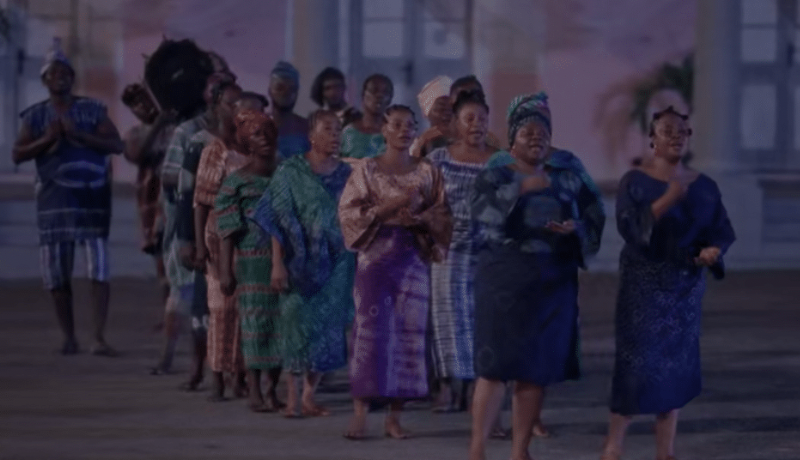
Unimpressive character: There is a list of at least twenty other actors that would have done justice to the role of Olohun Iyo played by Brymo. Maybe there was a reason he was cast for that role, but it is safe to say he didn’t fulfil that purpose.
From the first scene he showed till the last, it seemed like he was reading his lines from a book and just reciting it. He failed in bringing life to that character.
Conclusion
Overall, ‘Elesin Oba: The King’s Horseman’ is a film that had great potential, coupled with the advantage of the success the source material had, but with a failed attempt at visualizing the story the film intended to tell.

Leave a Reply